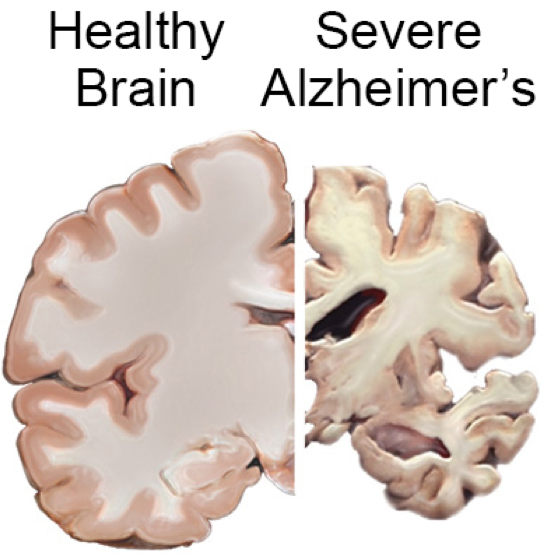
Alzheimer’s Can Be Reversed: New Study Shows Promising Treatment May Be Able To Reverse Alzheimer’s-Related Memory Loss
Among the frightening things that face us as we age the ravages of the mind have got to be the most disturbing. The idea of being alive but no longer knowing who you are or being able to remember your family and friends is terrifying. Alzheimer’s disease has to be the cruelest trick mother nature plays on us.
However a group of scientists from the University of Manchester have come up with a novel approach to the ravages of Alzheimer’s that may actually be able to reverse the memory loss that goes with it.
The study looked at the effects of an anti-inflammatory drug, mefenamic acid on mice that have been bred to develop symptoms of Alzheimer’s and amyloid beta-induced memory loss. Amyloid beta is a peptide of amino acids which forms the plaques that appear on the brains of Alzheimer’s patients and are thought to play a crucial role in the disease.
The drug hones in on an important inflammatory pathway called the NLRP3 inflammasome, which damages brain cells. According to the study’s authors, this is the first time a drug has been demonstrated to target this inflammatory pathway, which highlights its importance in how we look at the disease going forward.
Indeed, the study’s lead author suggests the results could and should be acted on sooner rather than later.
“Because this drug is already available and the toxicity and pharmacokinetics of the drug is known, the time for it to reach patients should, in theory, be shorter than if we were developing completely new drugs,” said lead author David Brough. “We are now preparing applications to perform early phase II trials to determine a proof-of-concept that the molecules have an effect on neuroinflammation in humans.”
The research was funded by the Medical Research Council and the Alzheimer’s Society, and indeed it should prove to be a stepping stone toward human trials. However, even in the midst of all the excitement, Brough sounded a note of caution, suggesting that studies looking at the long-term effects of such drugs on humans would need to take place.
Still, there is hope. In studying the mechanisms that drive Alzheimer’s in the brain, scientists can hone in on ways to prevent them or even reverse them, as Brough has promised is possible.
“There is experimental evidence now to strongly suggest that inflammation in the brain makes Alzheimer’s disease worse,” Brough said. “Until now, no drug has been available to target this pathway, so we are very excited by this result.”
###
http://www.kurzweilai.net/anti-inflammatory-drug-reverses-memory-loss-in-alzheimers-disease-model-mice

